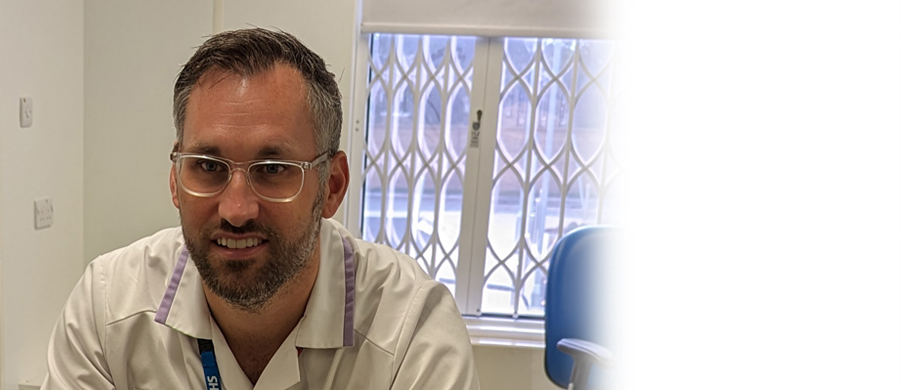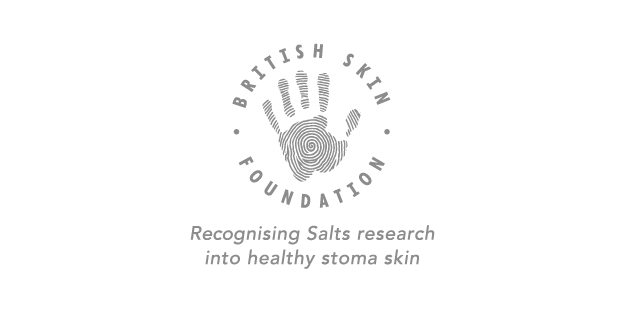What’s your background?
I qualified in 2018 from Huddersfield University and decided to stay in the area. After qualifying, I did some of my core rotations in stroke and respiratory, then three months into Outpatients, I became a specialist in Acute Therapy in Complex Care.
How did you end up working in a stoma team?
In late 2022 I joined the Colorectal Team. At first, the role was partly in stoma care, and partly respiratory, but I soon realised the two roles needed to be separated. My role became fully integrated within the Colorectal Team and I haven’t looked back!
How did you find working within the stoma team?
It felt natural right from the beginning. Firstly, I carried out stoma care basic training; siting and basic care skills, so I’m able to work on the clinics and wards. I started with two other colleagues, we found everyone really nice, easy to work with and very welcoming.
How do you improve a patient’s journey?
As a holistic therapist, I can offer them help with retraining physically and emotionally, giving them confidence in what they’ll be capable of after surgery.
Describe a typical day?
In the morning I visit the patients to complete their stoma care, and offer advice on diet and exercise. In the afternoons we have clinics where I do stoma management and offer exercise advice. The rest of the day is taken up with admin and organising ‘Prehab’ and ‘Surgery School’.
What is Surgery School & Prehab?
Every other Wednesday, we see patients who will be undergoing surgery in the coming weeks. We talk through what will happen, visit the wards, discuss their surgery, diet and nutrition, plus recovery. They can bring a partner or a friend along.
In ‘Prehab,’ patients about 2-3 weeks pre-op complete a questionnaire about their daily function, Fatigue and Anxiety levels, then complete some objective tests to create a personalised exercise plan. I then call them each week to see how they are getting on, and to make any changes.
What are the results looking like?
I’m really pleased with the results to date. For example, with the walk test, an improvement by approximately 40m can reduce their length of stay by one full day.
This approach can make great savings to the NHS and give a better outcome for the patient.
We’re seeing average improvements of 55m. Our current modal outcome is 5 days length of stay, median 6.2 days, but this is affected if a patient stays over the weekends and ICU.
What part of your role do you most enjoy?
As a physio attached to a stoma care team, I feel my skills add an MDT and more holistic approach not currently available in other trusts. I’m always learning and problem-solving and patients are now gaining a better understanding of what their bodies can do.
I like to think I help normalise having a stoma.








